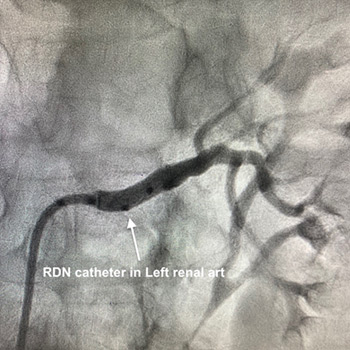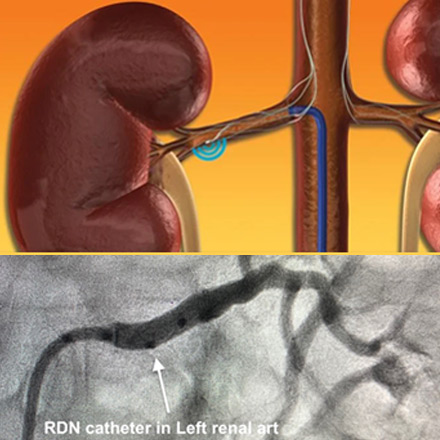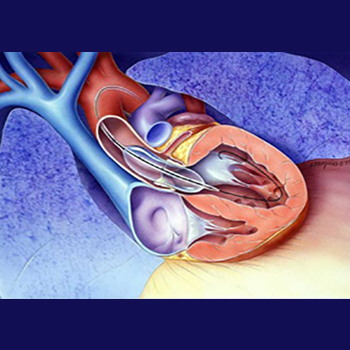

Hypertension is a very common medical problem affecting nearly half of the adult population in North America and 44% in Europe. In India, according to the 2019-20 National Family Health Survey (NFHS-5) the prevalence is 24% in men and 21% in women, which is probably underestimated as previous studies report prevalence of around 30% among Indian adults.
Studies over the years have shown that reducing the BP does reduce the events of heart attack, stroke and death. Lowering the blood pressure by 5 mmHg is shown to reduce stroke by an estimated 34%, ischemic heart disease by 21% and death by 13%.
The right combination of drugs is important for the management of hypertension. Sometimes despite the right combination of drugs and compliance with medication and lifestyle, blood pressure remains high for few patients. For these patients who also have ruled out other secondary causes of hypertension, a newer treatment modality has emerged called Renal denervation (RDN) and has been proven to reduce blood pressure in studies.
What is renal denervation (RDN) and how is it performed?
Renal denervation (RDN) is a catheter-based technique where a catheter is placed in the renal arteries (blood vessels that supply the kidneys) and either radio-frequency or ultrasound is used to burn the nerve endings surrounding the kidney arteries. The procedure is done under local anesthesia via a small pin hole in the groin. A small catheter is placed in the kidney blood vessel and after confirming the location with use of dye, a tiny wire with electrodes is inserted into the blood vessel and radio-frequency energy is delivered to the walls of the blood vessel. The procedure itself is very safe and can take up to 1 hour. The patient can be discharged the next day and can go back to normal life as before.
What is the benefit of renal denervation (RDN)?
The principle of renal denervation is to disrupt the sympathetic nerves around the kidney blood vessel with radiofrequency energy which in turn will reduce the sympathetic drive arising from those nerves, which is one of the main reasons for uncontrolled blood pressure. Both animal studies and large human clinical studies and registry data have shown that this procedure reduces the blood pressure significantly and consistently for up to 3 years (data available until now). Patients can reduce the number of medicines they are taking after this procedure for controlling blood pressure, thereby avoiding the long-term side effects of the drugs.
Am I a candidate for renal denervation (RDN) if I don’t want to take medication for BP?
There are some studies suggesting that this procedure can be a replacement for drugs in those with mild hypertension, but this needs to be validated in large clinical studies.





